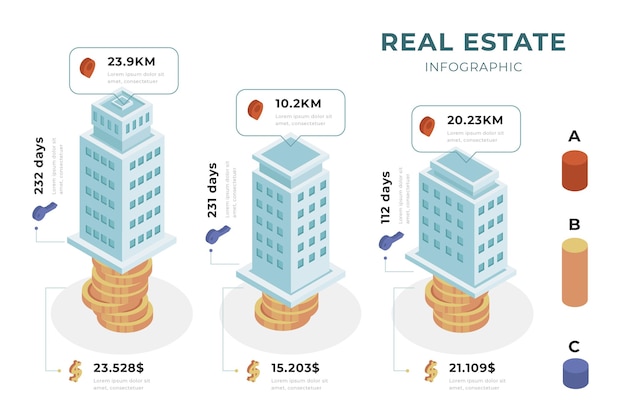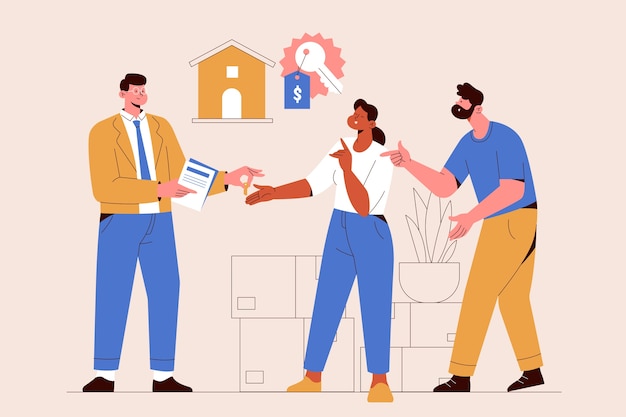
If you’re planning to buy a house soon and lack sufficient funds for it, finding a suitable mortgage can be challenging. Unfamiliarity with mortgage lending can seem intimidating initially, and it can quickly become overwhelming. Owing to the fact that a home often represents the most significant purchase of your lifetime and a mortgage represents a sizeable financial commitment, it is essential to do diligent research beforehand.
The big question remains – where to begin? There are countless queries to resolve: How should one secure the most favourable interest rate? Is private mortgage insurance (PMI) compulsory? How does it work if one doesn’t have a large down payment? Which type of mortgage would be the best fit?
Before starting your journey into the real estate market, it’s critical to acquaint yourself with available mortgage alternatives. Coming into a meeting with your loan officer armed with basic knowledge about different mortgage types can make the whole process smoother and less overwhelming.
Here are some insights provided by our colleagues at First Mortgage Manchester, constituting a compact guide to mortgage lending. Let’s get started with the fundamentals.
FOUR ESSENTIAL TYPES OF MORTGAGES
There are numerous mortgage options available, but conventionally, they can be divided into two categories – traditional and government loans.
Conventional mortgages refer to primary conforming loans, whereas government loans can be further categorized into three – FHA, VA, and USDA/RD – and come with governmental insurance.
Each of these types carries its benefits, but deciding on the best one depends upon your unique financial position, credit score, down payment capacity, and the requirement for mortgage insurance.
CONVENTIONAL MORTGAGE LOAN
Conventional mortgage loans often present one of the best choices for borrowers who are eligible. At the moment, the down payment for a conventional loan could be as low as 3%. However, to avoid paying private mortgage insurance (PMI), a down payment of at least 20% is necessary.
Conventional mortgages often offer attractive interest rates as borrowers typically need high credit scores, reducing the risk for the lender. Moreover, if you can’t arrange a 20% down payment and have to pay PMI, the PMI for conventional mortgages is relatively low. The amount is determined by the PMI company your lender collaborates with and isn’t a fixed percentage like in the case of government mortgages.
Conventional loans are usually the best fit for most borrowers, provided they qualify. However, those ineligible for a conventional mortgage might consider a government-backed mortgage such as VA, USDA/RD, or FHA loans.
VETERAN’S ADMINISTRATION LOAN
VA loans are catered specifically to veterans and spouses of deceased veterans. If you fall into this category, a VA loan could be a suitable option, especially if your credit isn’t stellar. A borrower can finance the complete purchase price of the home, making it beneficial for those lacking funds for a down payment.
USDA / RURAL DEVELOPMENT LOAN
If you are not a veteran and don’t have a down payment, you might want to explore the possibility of qualifying for a USDA or Rural Development (RD) loan. These are government-backed loans with specifications regarding the property location – it must be situated outside major cities, hence the “Rural Development” label.
FEDERAL HOUSING ADMINISTRATION MORTGAGE LOAN
In the past, FHA loans were popular among people without large down payments or exceptional credit scores. With FHA loans, the minimal down payment could be as low as 3.5%. However, these loans are not as desirable now due to the hefty monthly mortgage insurance (MI) fee of 0.85% for a 30-year mortgage.
FIXED RATE VERSUS ADJUSTABLE RATE
Once you choose a loan type, the next decision is about opting for either a fixed-rate mortgage or an adjustable-rate mortgage (ARM).
ADJUSTABLE RATE MORTGAGES
ARMs remain risky as they are prone to adjustments over time. The only way out is to sell the home, refinance to a fixed rate in the future, or repay your mortgage, none of which are guaranteed options.
FIXED RATE MORTGAGES
Fixed-rate mortgages are a more common and safer choice for most borrowers today. Once you lock in your rate with your loan officer for a fixed-rate mortgage, that rate will remain unchanged until your loan is fully repaid.
WHAT’S THE BEST MORTGAGE LOAN FOR YOU?
Your decision should mainly depend on your credit score and down payment capacity. For prospective homeowners with excellent credit and a minimum of a 3% down payment, a conventional mortgage usually offers the most affordable rates and PMI insurance. Conversely, a VA or USDA loan could be an effective alternative for those with mediocre credit or low down payment capability. When all other options fail, consider an FHA loan.
In conclusion, after exploring and selecting the loan type that fits your needs best, schedule an appointment with a loan officer to get qualified and have your credit evaluated. Going in with the necessary information about the loan you desire gives your loan officer an impression of your preparedness. After receiving the approval from your loan officer, the search for a Realtor begins, and that’s where the excitement truly kicks in.
Good luck finding your dream home!


